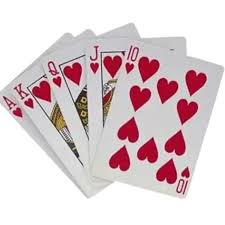Solar Eclipse How To, A solar eclipse is a stunning celestial event that occurs when the Moon passes between the Earth and the Sun, temporarily obscuring the Sun’s light. Watching a solar eclipse can be an awe-inspiring experience, but it’s crucial to do so safely to protect your eyes. This article will guide you through the different types of solar eclipses, how to prepare for one, and safe viewing techniques.
Understanding Solar Eclipses
Types of Solar Eclipses
- Total Solar Eclipse: The Moon completely covers the Sun, casting a shadow on Earth. This is the most dramatic type and can only be seen from specific locations.
- Partial Solar Eclipse: Only a portion of the Sun is obscured by the Moon. This can be seen from a broader area than a total eclipse.
- Annular Solar Eclipse: The Moon is too far from Earth to completely cover the Sun, resulting in a ring-like appearance. This occurs when the Moon’s apparent size is smaller than that of the Sun.
Upcoming Eclipses
Check reliable astronomical sources or websites for information on upcoming solar eclipses, including dates, times, and paths of visibility.
Preparing for a Solar Eclipse
1. Check the Timing
- Date and Time: Determine when the eclipse will occur in your area. Eclipses can last several hours, but totality (when the Sun is completely covered) lasts only a few minutes.
2. Choose Your Viewing Location
- Optimal Spot: Find a location with a clear view of the sky, away from tall buildings or trees. If you’re traveling to see a total eclipse, consider arriving early to secure a good spot.
Safe Viewing Techniques
1. Use Eclipse Glasses
- ISO Certification: Always use solar viewing glasses that meet the ISO 12312-2 safety standard. Regular sunglasses, even very dark ones, are not safe for viewing the Sun.
2. Pinhole Projector Method
If you don’t have eclipse glasses, you can create a simple pinhole projector:
- Materials Needed: A piece of cardboard or a sheet of paper and another piece of paper for the screen.
- Instructions:
- Cut a small hole in the cardboard (about 1/8 inch).
- Hold the cardboard with the hole facing the Sun.
- Position the screen (white paper) on the ground or a flat surface to catch the sunlight passing through the hole. You will see a small image of the Sun projected on the paper.
3. Solar Filters for Telescopes and Binoculars
If you plan to use binoculars or a telescope, make sure they are equipped with proper solar filters specifically designed for solar viewing. Never look through regular binoculars or telescopes without solar filters, as this can cause severe eye damage.
4. Photography and Viewing Equipment
If you want to photograph the eclipse:
- Use Solar Filters: Attach solar filters to your camera lens to protect both your eyes and your equipment.
- Practice: Familiarize yourself with your camera settings before the eclipse to capture the event without distractions.
Enjoying the Experience
1. Witness the Changes
During the eclipse, watch for changes in the environment. As the Sun gets covered, you may notice temperature drops, shifts in animal behavior, and a unique lighting quality.
2. Share the Moment
Share your experience with friends and family. Whether you’re watching together or connecting online, sharing the joy of the eclipse enhances the experience.
Conclusion
A solar eclipse is a breathtaking natural phenomenon that offers a unique opportunity to connect with the universe. By following safety precautions and using proper viewing techniques, you can enjoy this extraordinary event without risking your eyesight. Prepare in advance, gather your equipment, and get ready for an unforgettable celestial experience. Happy viewing!




